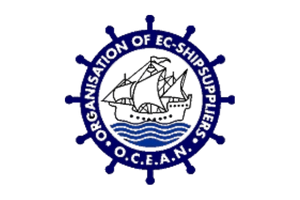The European Ship Suppliers Organization, known as OCEAN, is the voice of the ship supplying industry in Europe. Founded in 1976 originally under the French title “Organisation de la Communauté Européenne des Avitailleurs de Navires,” OCEAN represents hundreds of ship chandlers across Europe that supply a wide array of goods to several hundred thousand ships annually in nearly 1,200 merchant ports along the 70,000 km European coastline. The organization’s primary mission is to achieve an optimal business climate for European ship suppliers and enhance the overall competitiveness of the industry. They play a vital role in fostering understanding between ship suppliers and European policymakers through transparent communication and inclusive dialogue.
OCEAN focuses on key areas such as agriculture, rural development, customs, food safety, taxation, and trade, advocating the collective interests of its members. The industry represented by OCEAN provides essential 24-hour services year-round, underpinning modern maritime trade. The organization actively engages with EU legislative proposals related to customs (notably the Union Customs Code), VAT, trade, and export controls. OCEAN also participates in EU-supported forums and platforms including the Trade Contact Group, Industry Expert Group on Land Transport Security, Stakeholders Advisory Group on Maritime Security, and the Excise Contact Group. In addition, it is a committee of the International Shipsuppliers & Services Association (ISSA), reflecting its global linkage.
OCEAN operates dual secretariats, one in London handling administration and operations, and another in Brussels focusing on European affairs and advocacy. The Brussels office employs around three part-time staff including a Secretary General and Policy Advisor, emphasizing its commitment to representation at the EU level. OCEAN has adopted its own Code of Conduct for relations with EU institutions and is committed to transparency, having joined the European Union Transparency Register in 2011.
Their activities include providing guidelines for ship supply under the Union Customs Code, and addressing responsibilities under EU Ship Recycling Regulations. Networking is robust, with affiliations across trade associations and advisory groups influencing transport security and maritime policies. Financially, the organization manages its lobbying efforts through annual expenditures recorded in the Transparency Register, reflecting steady engagement since 2011.


